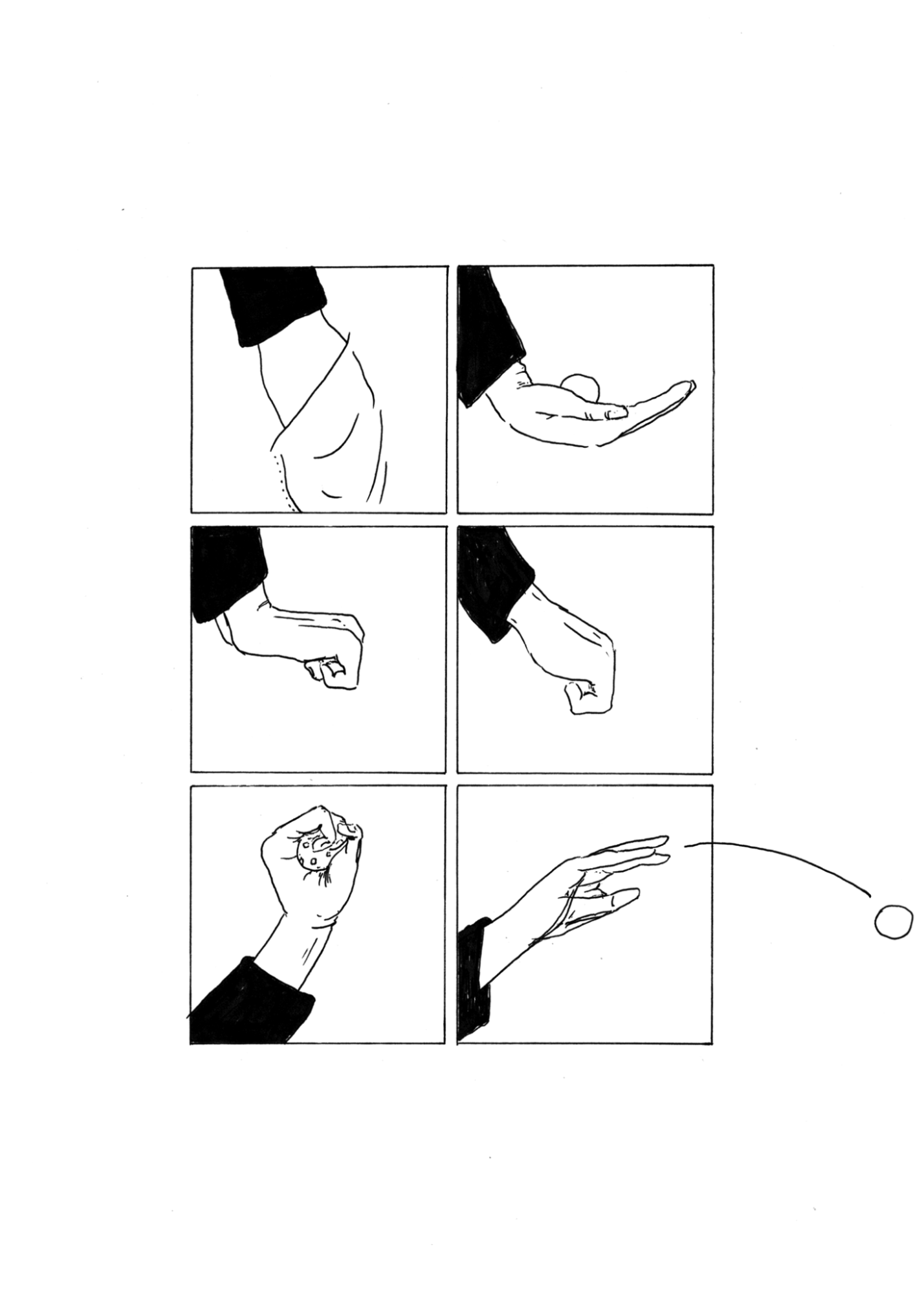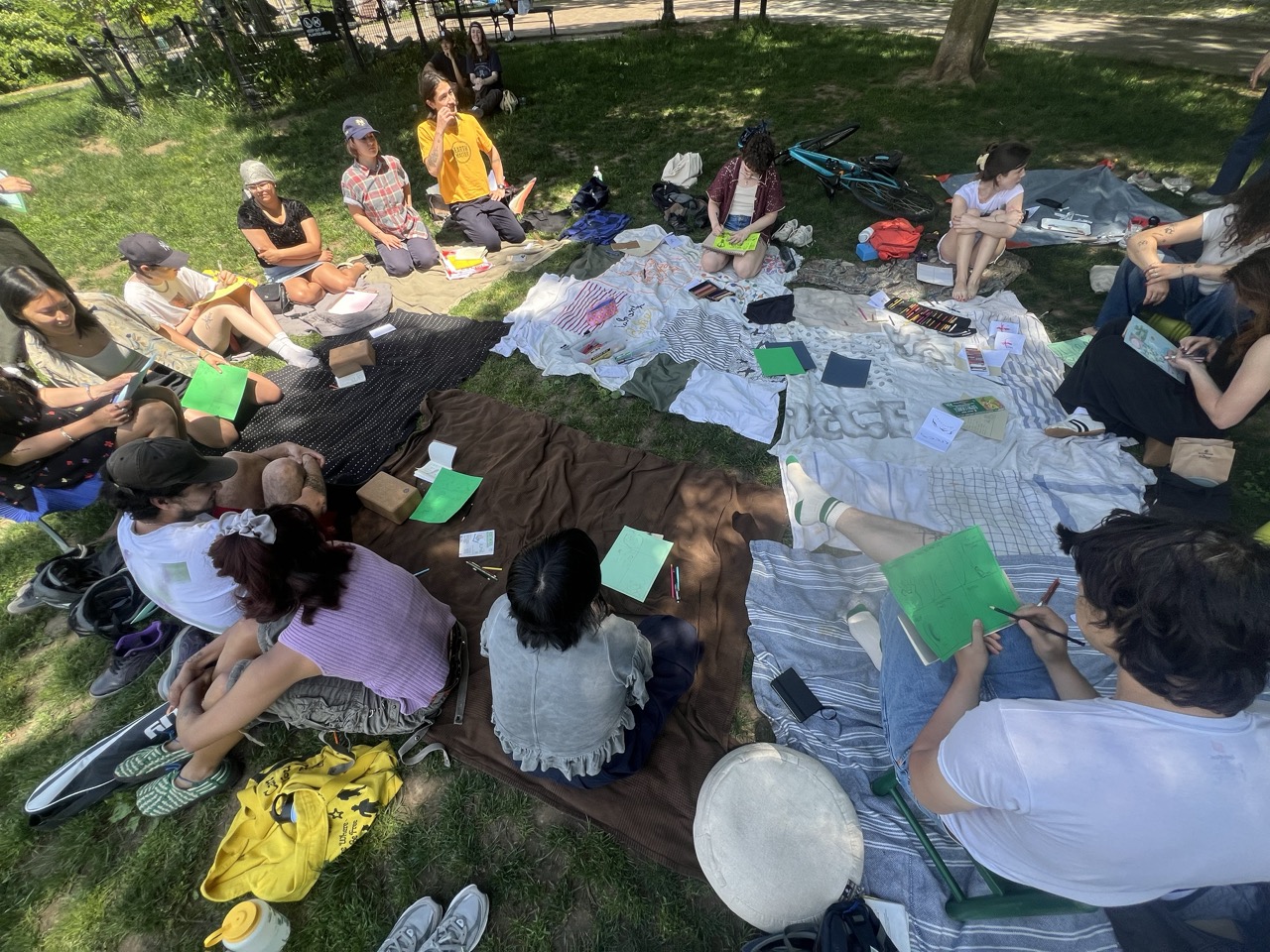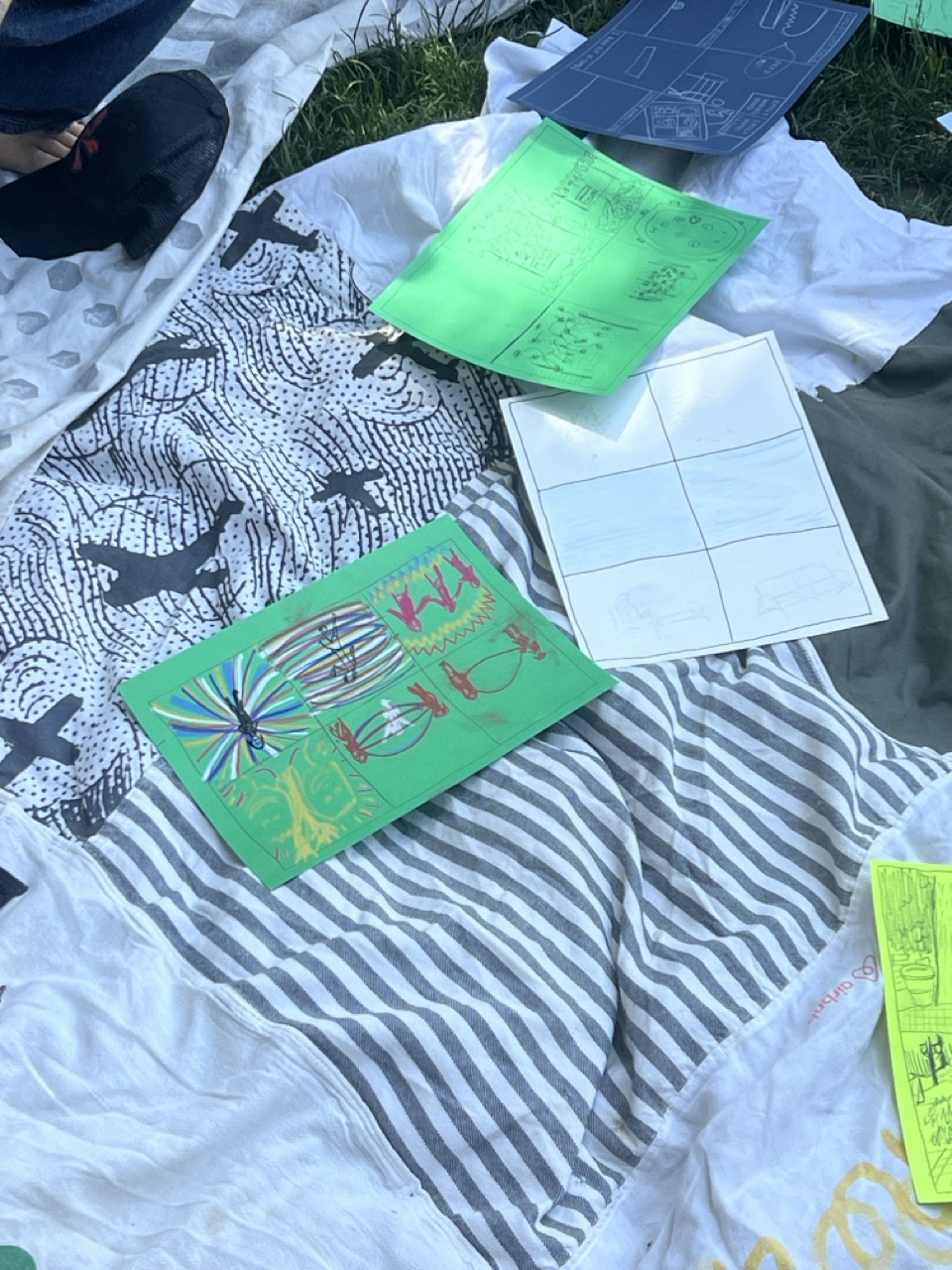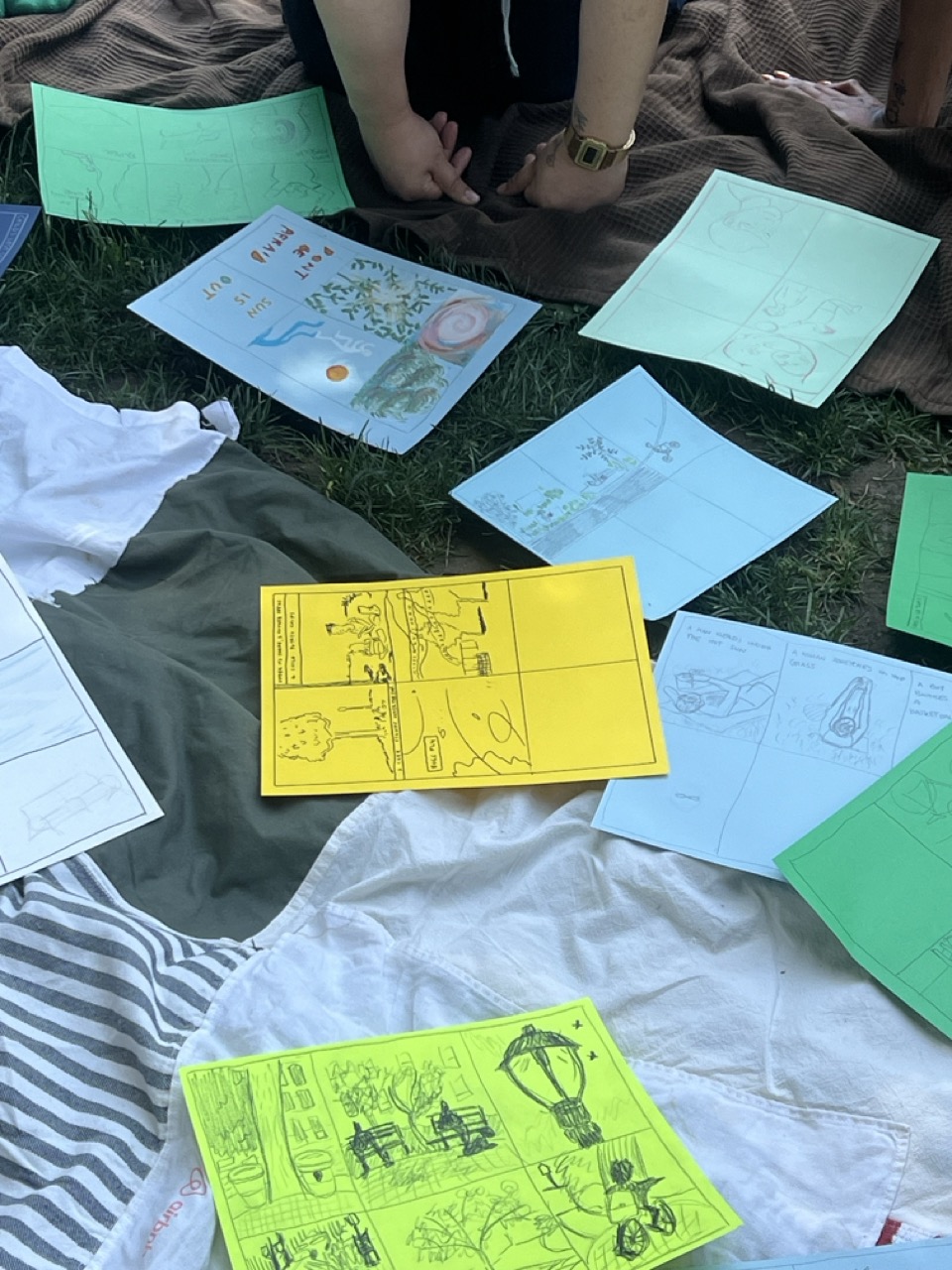Archived Activity
Observational Drawing, Part 1
A breathwork and comic-making workshop
When
Saturday, May 25 2024
Where
Time
12:00 pm - 2:00 pm
Facilitator
Cost
$25, Sliding Scale
Max # of Participants:
20
About Facilitators
John Grund is a comics artist, ceramicist, and community gardener. He makes comics about nature, technology, and the city. When hes not drawing or sculpting, he can be found wandering the city, people watching, or planting a seed.
Leah Yassky is a movement artist working in NYC. With a foundation in contemporary choreography, Leah creates classes, performances, films, and commercial work. Leah loves growing cacti and everyday herbalism.
Objective
The goal of this workshop is to observe and understand our relationships to our environment. Through a mixed practice of breathwork, observation, note-taking, and drawing, we will find a sense of place and form new understandings of how places change. This class will use drawing as a way to see the world.
Participants will begin with a grounding breathwork practice led by Leah. Then, drawing exercises with John will serve as warm-up before finally making an observational comic of their surroundings. What do you see around you? Any animals? Any plants? What are they doing? What sounds do you hear? What does the sound look like? Where is it coming from? What just happened? What happened next? These are the kinds of questions we are looking to answer in this class.
Those who attend this first session will also have an opportunity to advance the comic started in a second session on June 1.
What's Included:
- Paper
- Coloring Pencils
- Rulers
What to Bring
- Imagination
- Observational skills
- Mark making utensils you like to draw with (Optional)
- Paper you want to draw on (Optional)
- Sketchbook or notepad (Optional)
CURRICULUM
“In a Western scientific context, observation has been used as an objective knowledge. Through the constraints of controlled testing and modeling and trials, results have been seen as scaleable and therefore applicable beyond the subject of the observation results. Yet what is actually witnessed is always isolated in the subjectivities of time, place, history and body. Observation is not so much a way to discover truth, but patterns. When seen in this way, observation can lead to greater understanding of connections through similarities and particulars of individuals. To observe is to also participate with one’s own body, mind, and cultural attachments. Is it essential to be reflective and consider how conclusions can be mirrors and participation requires ethical cooperation and accountability.” -Aidan Koch
Curriculum includes:
- Breathwork guide
- Drawing exercises
- Reflection questions





